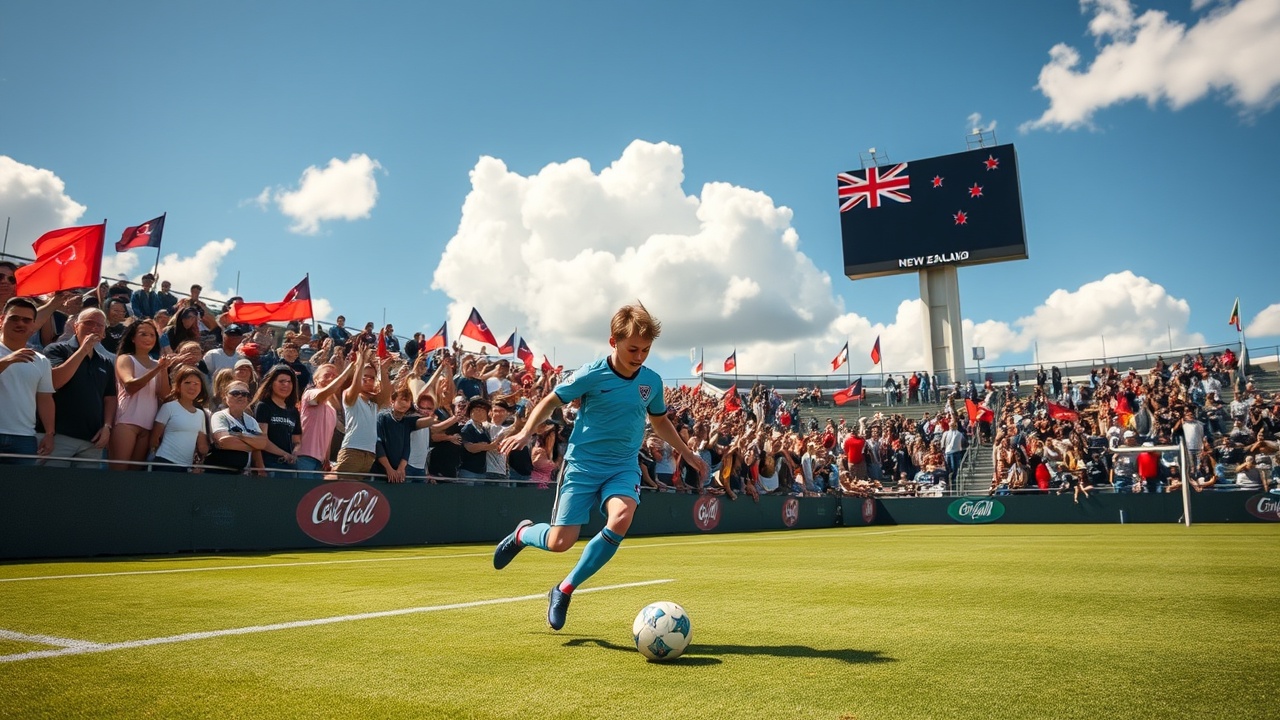Auckland City FC’s Journey in the Club World Cup
Auckland City FC entered the Club World Cup with low expectations, notably suffering a staggering 10-0 defeat to Bayern Munich, the reigning champions from Germany. However, the semi-professional team showcased its determination and skill by achieving a commendable draw against Boca Juniors in the group stage. This unexpected outcome highlighted the team’s resilience, with 20-year-old Nathan Garrow, a full-time student and goalkeeper, and Cristian Gray, a trainee teacher who expressed concerns about balancing football and academic assignments, making notable contributions on the field.
CEO’s Pride and the Growth of Football in New Zealand
Andrew Pragnell, the CEO of New Zealand Football, expressed pride in the team’s performance, emphasizing the diverse backgrounds of the players who balance jobs and education while representing their nation against established football teams. Pragnell pointed out that despite the initial setback against Bayern—the result many anticipated—no one predicted that a team labeled as ‘amateur’ could hold Boca Juniors to a draw, showcasing a spirit emblematic of New Zealanders.
Football has become an increasingly popular sport in New Zealand, overtaking rugby, which previously dominated with 155,568 registered players last year. By contrast, more than 170,000 individuals now engage in football, including futsal participants. Pragnell noted that the growth must continue, necessitating more volunteers, coaches, and facilities to meet rising demands. There is also a noticeable shift among younger generations, influenced by extensive media coverage and promotion of the global game, causing a shift in sports fandom from rugby to football attire.
Revitalization of New Zealand’s Football Landscape
New Zealand’s football landscape has been revitalized in recent years, bolstered by the successful hosting of the Women’s World Cup in 2023. In their opening match, New Zealand faced Norway at Eden Park, drawing an impressive crowd of over 42,000 attendees. The men’s team is also making strides, having qualified for the World Cup in 2026, marking their third appearance at the tournament. While they seek their first victory, they made history in 2010 by remaining unbeaten in group play despite not advancing to the knockout stage.
Star forward Chris Wood, who scored 20 goals for Nottingham Forest last season, epitomizes the talent emerging from New Zealand, with players now competing across leagues in Europe and Major League Soccer. Recent performances, including a friendly win over Ivory Coast and a draw with the USMNT, underscore the potential of New Zealand’s national teams, despite FIFA rankings placing the men’s team at 86th and women’s at 33rd.
Future Aspirations and Challenges
Looking ahead, Pragnell has expressed ambition for New Zealand to co-host the men’s World Cup in 2038. This prospect arises owing to established hosting agreements for the 2030 and 2034 tournaments, with FIFA’s rotation policy opening opportunities for regions like Oceania. Current FIFA plans suggest that future tournaments will not include Australia, enhancing New Zealand’s chances for collaboration with countries in the Americas.
Auckland City, having participated in the Club World Cup due to their dominance in the Oceania Champions League, will face hurdles moving forward as Oceania restructures its qualification system. While traditional powerhouses like Auckland City might not be present in future editions, teams like Wellington Phoenix and Auckland FC (a distinct club from Auckland City) are positioning themselves to compete. The latter has drawn attention with substantial investments and a solid fanbase in the Australian A-League.
In light of their World Cup earnings—more than $3.5 million from FIFA—the financial aspect remains a concern as funds are divided among players, coaches, and community initiatives, supporting football infrastructure and development across New Zealand. The hopeful narrative of resilience and growth encapsulated in Auckland City’s journey hints at a bright future for football in New Zealand.




